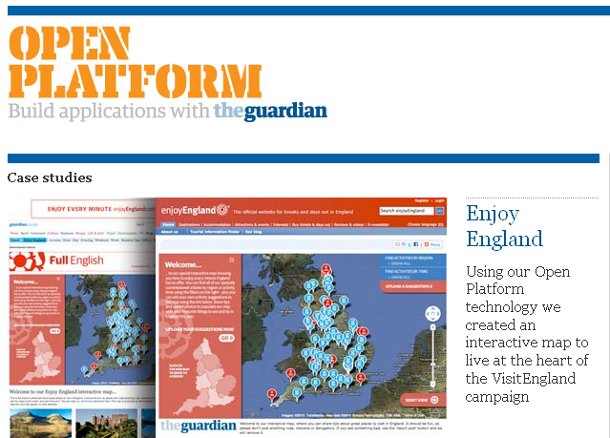Guardian opens doors to sharing data and articles through Open Platform

Developers can access information to build their own apps
Guardian News & Media (GNM) has taken the beta tag off its open content platform allowing third-party developers and organisations to make use of its articles and datasets.
The Open Platform, which got its commercial launch last week, enables partners and developers to access datasets - such as election results or statistics on drug use across the country - held by the media group for reuse in their own applications.
While the platform also enables third parties to reuse its articles, GNM is aiming to expand beyond being a provider of news content into fuelling the development of new online apps.
"Our philosophy is we wanted to be part of the web, not just a site on the web," GNM's head of technology strategy Stephen Dunn told silicon.com.
GNM uses the open-source search technology Solr to power the Open Platform's API by indexing data held on a central Oracle database. In order to allow numerous organisations to search for content at the same time, GNM is using Amazon's EC2 cloud service to replicate and process data searches.

The Guardian's Open Platform is open for business and will make data available for creating new online apps
(Screenshot: Guardian.co.uk by silicon.com)
The Open Platform was launched in beta form in March 2009. Since then, more than 2,000 organisations have registered to use the beta version of the platform with more than 200 apps, products and digital visualisations created using the technology.
"What we're finding is we release that data, our readers and developers pick that up and do things that we didn't have time to or wouldn't have thought of doing," Dunn said.
GNM has three types of access to the platform. The first is keyless access which provides free access to headlines, tags and metadata. No registration is required and people using the data can keep all revenue they make with their applications.
The next option is approved access which is a licence to publish Guardian articles in full. In return, the Guardian embeds ads, performance tracking tools and a watermark in articles that are published. Partners can keep associated revenue but have to register and obtain an access key.
The final option is bespoke access, which is access to all data held by the Guardian which can then be used for licensing content and integrating applications within the Guardian online network. The resulting applications can appear on the Guardian website as well as on the website of the developer who created the app.
One example of such an app is an interactive map of England created by VisitEngland. Towns and cities on the map appear with embedded Guardian content featuring that particular place.